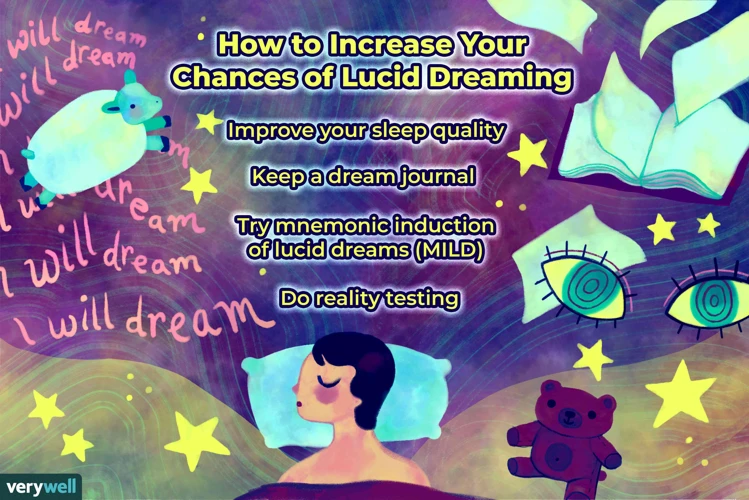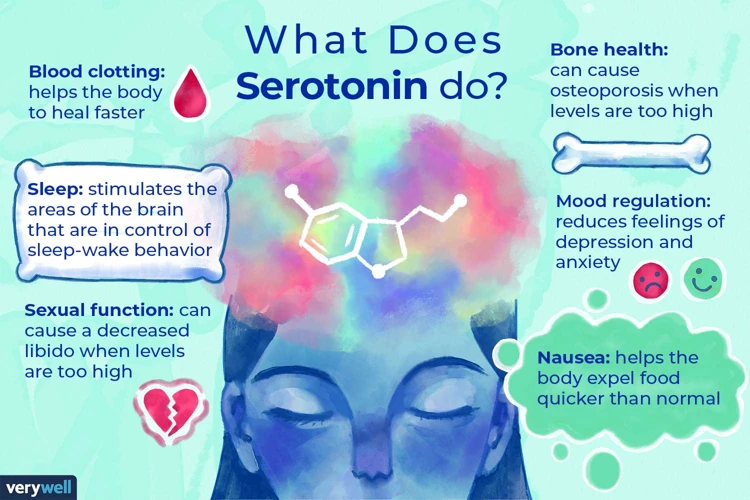Do you ever wish you could have more control over your dreams? Imagine being able to explore fantastical worlds, meet incredible beings, and experience thrilling adventures all within the confines of your own mind. Enter the fascinating realm of lucid dreaming. Lucid dreaming is a phenomenon that allows individuals to become aware and conscious within their dreams, enabling them to actively participate and shape the dream narrative. But what if there was a way to increase your chances of having lucid dreams? In this article, we will delve into the intriguing connection between diet and lucid dreaming, uncovering the impact of nutrition, specific nutrients, meal timing, hydration, and pre-bedtime practices on the quality and frequency of lucid dreaming. Get ready to unlock the secrets to a world where anything is possible.
The Basics of Lucid Dreaming

Lucid dreaming is a truly fascinating phenomenon that allows individuals to become fully aware and conscious within their dreams. It is like having a secret doorway to a world where anything is possible. During a lucid dream, dreamers have the power to control and manipulate their dream environment, creating their own unique experiences. One of the most popular methods to induce lucid dreams is through the use of reality checks, which are techniques that help individuals become aware of whether they are dreaming or in reality. These reality checks can include actions such as looking at a clock or attempting to push a finger through the palm of the hand. Another powerful tool for enhancing lucid dreaming is meditation, which can improve dream recall and increase self-awareness. By incorporating mindfulness practices into one’s daily routine, individuals may find themselves more likely to experience lucidity in their dreams. To learn more about proven techniques and tips for lucid dreaming, check out our article on proven techniques for lucid dreaming.
Definition and Explanation of Lucid Dreaming
Lucid dreaming is a unique state of consciousness that occurs during sleep, where the dreamer becomes fully aware that they are dreaming. In other words, it is a dream in which the individual is conscious or possesses self-awareness. This awareness allows dreamers to engage and interact with their dreams consciously, as if they are experiencing the events in real life. When lucid dreaming, individuals have the ability to control their actions, manipulate the dream environment, and make conscious decisions within the dream world. The experience of lucid dreaming can vary from person to person, with some individuals achieving sporadic moments of lucidity while others mastering the skill to have lucid dreams regularly. Lucid dreaming has been a topic of interest and study for decades, with researchers and enthusiasts exploring various techniques such as reality checks and meditation to enhance the frequency and depth of lucid dreaming experiences. To learn more about the role of reality checks in lucid dreams, check out our dedicated article on the role of reality checks in lucid dreams. Additionally, the power of meditation for lucid dreaming is another avenue worth exploring to improve dream recall and increase the chances of lucidity. Visit our article on the power of meditation for lucid dreaming to gain further insight into this practice.
Benefits of Lucid Dreaming
Lucid dreaming offers a multitude of benefits that go beyond simple entertainment. One of the most significant advantages is the potential for personal growth and self-discovery. Within the lucid dream state, individuals have the opportunity to confront their fears, overcome obstacles, and explore their subconscious mind. This can lead to profound insights, increased self-awareness, and a greater sense of confidence and empowerment in waking life. Lucid dreaming also provides a platform for enhancing creativity and problem-solving abilities. Many renowned artists, writers, and inventors have reported receiving inspiration and innovative ideas from their lucid dreams. Additionally, lucid dreaming can serve as a form of therapy, allowing individuals to work through emotional issues, process trauma, and gain a deeper understanding of their own thoughts and emotions. Lucid dreaming can be a source of pure joy and exhilaration, providing a unique and immersive experience that extends the boundaries of reality. The ability to fly, visit exotic locations, or meet beloved fictional characters can bring about a sense of wonder and childlike delight. The benefits of lucid dreaming are vast and varied, offering individuals the opportunity for personal growth, creativity, emotional healing, and pure enjoyment.
Nutrition and Dreaming

Nutrition plays an important role in various aspects of our health, and it turns out that it also has an intriguing connection to our dreaming experiences. Quality sleep is essential for the occurrence of vivid and memorable dreams, and nutrition plays a significant role in sleep quality. Consuming a well-balanced diet that includes foods rich in nutrients like magnesium, B vitamins, and omega-3 fatty acids can promote better sleep and potentially enhance the vividness and intensity of dreams. Additionally, certain foods have been associated with improved dream recall, making it easier to remember and analyze the content of our dreams. On the other hand, certain foods, such as those high in sugar and caffeine, may negatively affect the quality of sleep and dream experiences. So, it’s important to pay attention to our diet and make conscious choices that support healthy sleep and dreaming.
The Role of Nutrition in Sleep Quality
A restful night’s sleep is essential for overall well-being, and nutrition plays a crucial role in determining the quality of our sleep. The foods we consume can either promote or hinder a good night’s rest. For instance, certain nutrients are known to enhance sleep quality due to their ability to regulate neurotransmitters and hormones that govern sleep. One such nutrient is tryptophan, an amino acid found in foods like turkey, dairy products, and nuts. Tryptophan helps in the production of serotonin, a neurotransmitter that promotes relaxation and sleep. Another important nutrient for sleep is magnesium, which helps to calm the nervous system and regulate melatonin, the hormone that controls sleep-wake cycles. Magnesium-rich foods include dark leafy greens, whole grains, and legumes. On the other hand, there are certain foods that can disrupt sleep. Consuming large amounts of caffeine or spicy and fatty foods close to bedtime may lead to indigestion or discomfort, making it harder to fall asleep. It’s also important to be mindful of alcohol consumption as it can disturb the sleep cycle and lead to fragmented and less restorative sleep. By paying attention to our nutrition and making conscious choices regarding the types of foods we consume, we can positively impact the quality of our sleep and, in turn, improve our overall well-being.
The Impact of Diet on Dream Recall
The Impact of Diet on Dream Recall:
1. Adequate Nutrition: Consuming a well-balanced diet that includes all essential nutrients is crucial for maintaining optimal brain health and supporting dream recall. Key nutrients such as vitamins B6 and B12, magnesium, and omega-3 fatty acids are known to enhance cognitive function and memory, which can positively influence dream recall.
2. High-Protein Foods: Including protein-rich foods in your diet may have a positive impact on dream recall. Proteins contain high levels of amino acids, which play a role in the synthesis of neurotransmitters like serotonin and dopamine. These neurotransmitters are associated with mood regulation and can potentially improve dream recall.
3. Vitamin B6: This essential vitamin is directly linked to dream recall. Foods rich in vitamin B6, such as bananas, spinach, and salmon, may increase dream vividness and improve overall dream recall.
4. Hydration: Staying properly hydrated is vital for optimal brain function, including dream recall. Dehydration can negatively affect cognitive abilities, making it harder to remember dreams. It is recommended to drink enough water throughout the day to maintain hydration levels.
5. Avoiding Heavy Meals Before Bed: Eating heavy or greasy meals close to bedtime can disrupt sleep patterns and potentially affect dream recall. It is best to opt for lighter, easily digestible meals in the evening to promote better sleep quality and ultimately enhance dream recall.
By paying attention to the impact of diet on dream recall, individuals can make conscious choices to incorporate foods that support brain health, increase nutrient intake, and establish healthy pre-bedtime eating habits.
Foods That May Enhance Dreams
Certain foods have been suggested to enhance dreams and potentially increase the likelihood of having lucid dreams. While scientific research on this topic is limited, anecdotal evidence and traditional beliefs provide some insights into these foods. One such food is bananas, which are rich in potassium and vitamin B6. Vitamin B6 is known to boost the production of serotonin, a neurotransmitter that plays a role in regulating sleep and dreaming. Another food that may enhance dreams is turmeric, which contains curcumin, a compound that has been linked to improved cognitive function and memory. Additionally, herbal teas like chamomile and valerian root are commonly believed to promote relaxation and enhance dream vividness. Nuts and seeds, such as almonds and pumpkin seeds, are rich in magnesium, which has been associated with better sleep quality and dream recall. Finally, dark chocolate contains theobromine, a stimulant that can increase brain activity and potentially contribute to more vivid dreams. While the effects of these foods on dreams may vary from person to person, incorporating them into your diet may provide an interesting avenue to explore in your quest for lucid dreaming.
Foods That May Negatively Affect Dreaming
Certain foods have been suggested to have a negative impact on dreaming, potentially hindering the ability to have vivid and memorable dreams. One such group of foods is those that contain high levels of caffeine. Caffeine is a stimulant that can interfere with sleep quality and disrupt the natural sleep cycle, which may ultimately affect the dreaming process. Similarly, consuming heavy and greasy meals close to bedtime can also negatively affect dreaming. These types of meals may lead to indigestion and discomfort, making it difficult for the body to relax and enter a deep sleep state conducive to dreaming. Additionally, spicy foods have been known to cause heartburn and can disrupt sleep by causing discomfort and disrupting the natural sleep cycle. Lastly, alcohol is another substance that may interfere with dreaming. Although alcohol may initially make one feel sleepy, it can disrupt the later stages of sleep, including the REM (rapid eye movement) stage, which is when most vivid dreaming occurs. It is advisable to moderate the consumption of caffeine, heavy and greasy meals, spicy foods, and alcohol to ensure optimal sleep quality and enhance the potential for vivid and memorable dreams.
Specific Nutrients and Their Effects

When it comes to exploring the connection between diet and lucid dreaming, specific nutrients play a crucial role in impacting the quality and frequency of our dreams. One such nutrient is Vitamin B6, which is known to enhance dream clarity and vividness. It is believed that Vitamin B6 influences the production of serotonin, a neurotransmitter that plays a role in regulating mood and sleep patterns. Another important nutrient is Magnesium, which is known for its muscle-relaxing properties and ability to promote deep and restful sleep. By enhancing sleep quality, Magnesium may indirectly contribute to more vivid and memorable dreams. Melatonin, a hormone that regulates sleep-wake cycles, also plays a part in dreaming. By supplementing Melatonin, individuals may experience more vivid and lucid dreams. Lastly, Omega-3 fatty acids, commonly found in foods like fish and nuts, have been associated with improved cognitive function, which may potentially have a positive impact on dream recall and lucidity. It’s important to note that while these nutrients may have effects on dreams, individual experiences may vary.
Vitamin B6
Vitamin B6, also known as pyridoxine, plays a crucial role in the regulation of neurotransmitters in the brain, making it an important nutrient to consider when exploring the connection between diet and lucid dreaming. One of the key neurotransmitters affected by vitamin B6 is serotonin, which is involved in mood regulation and sleep-wake cycles. Adequate levels of serotonin are essential for healthy sleep patterns, and deficiencies in this neurotransmitter have been linked to various sleep disorders. By increasing vitamin B6 intake, individuals may potentially promote the synthesis of serotonin, leading to improved sleep quality and potentially enhancing the chances of experiencing lucid dreams. While further research is needed to fully understand the impact of vitamin B6 on lucid dreaming, incorporating B6-rich foods into your diet, such as bananas, poultry, fish, and whole grains, could be a step towards optimizing your dream experiences. It’s important to note that vitamin B6 supplements should be taken within the recommended dosage, as excessive intake can lead to adverse effects. As always, consulting with a healthcare professional is advised before making any significant changes to your diet or supplement routine.
Magnesium
Magnesium is an essential mineral that plays a vital role in various bodily functions, including muscle and nerve function, energy production, and bone health. When it comes to dreaming, magnesium also has an interesting connection. Adequate magnesium levels have been associated with improved sleep quality and reduced insomnia symptoms. This is because magnesium helps regulate neurotransmitters responsible for sleep, such as melatonin and GABA. Additionally, magnesium has a calming effect on the body and helps relax muscles, which can promote a sense of relaxation and ease before sleep. This relaxation can potentially enhance the likelihood of experiencing vivid and memorable dreams. Foods rich in magnesium include leafy green vegetables, nuts, seeds, whole grains, and legumes. Supplementing with magnesium may also be an option for those who struggle to meet their daily requirements through diet alone. However, it’s important to consult with a healthcare professional before starting any new supplements to ensure proper dosage and avoid any potential interactions with medications. So, be sure to incorporate magnesium-rich foods into your diet or consider supplementation if you’re looking to explore the potential benefits it may have on dream quality.
Melatonin
Melatonin is a hormone that plays a crucial role in regulating our sleep-wake cycle and promoting quality sleep. It is naturally produced by the pineal gland in our brain, and its levels rise in the evening, signaling to our body that it is time to sleep. When it comes to the connection between melatonin and lucid dreaming, some researchers believe that supplementing with melatonin could potentially enhance dream vividness and increase the likelihood of having lucid dreams. This is because melatonin helps to regulate REM sleep, the stage of sleep where dreams occur. By taking melatonin supplements before bedtime, individuals may experience intensified dream experiences and a greater awareness within their dreams. However, it is important to note that the effects of melatonin on lucid dreaming can vary from person to person, and it should be used with caution and under the guidance of a healthcare professional. Additionally, it is always advisable to prioritize healthy sleep habits and address any underlying sleep issues before considering melatonin supplementation for the purpose of lucid dreaming.
Omega-3 Fatty Acids
Omega-3 fatty acids are a type of essential fatty acid that play a crucial role in various aspects of our health, including brain function and overall well-being. When it comes to dreaming, omega-3 fatty acids may also have an impact. These fatty acids are known to support healthy brain function and improve cognitive abilities, which can potentially extend to the dream state. By consuming foods rich in omega-3 fatty acids, such as fatty fish (e.g., salmon, mackerel), walnuts, chia seeds, and flaxseeds, you may enhance your brain’s ability to create vivid and memorable dreams. Additionally, research suggests that omega-3 fatty acids may help regulate the sleep-wake cycle and improve sleep quality, which can positively influence dream recall. While more studies are needed to fully understand the relationship between omega-3 fatty acids and dreaming, incorporating these healthy fats into your diet may contribute to a more fulfilling and memorable dream experience.
Meal Timing and Dreaming

Meal timing plays a crucial role in our overall well-being, including its potential impact on our dreaming experiences. Research suggests that the timing of our meals can affect the quality and content of our dreams. One key factor to consider is the timing of our last meal before bedtime. Consuming a heavy or spicy meal close to bedtime can increase the likelihood of having indigestion or experiencing uncomfortable physical sensations while sleeping, which may disrupt the dream cycle. On the other hand, going to bed on an empty stomach may lead to hunger pangs that can also interfere with sleep and dreaming. Striking a balance is essential. It is recommended to consume a light and balanced meal a few hours before bed. This allows the body enough time to digest the food, reducing the chances of digestive discomfort during sleep. Some experts also suggest that incorporating certain foods into your pre-bedtime snack, such as almonds, bananas, or dairy products, can potentially enhance the production of tryptophan and melatonin, which are known to promote relaxation and better sleep quality. Experimenting with different meal timing strategies and observing how your dreams are affected can help you find the optimal approach for promoting a restful night’s sleep and potentially more vivid and memorable dreams.
The Influence of Hydration

Hydration plays a crucial role in various aspects of our well-being, including sleep and dreaming. When it comes to lucid dreaming, maintaining adequate hydration levels can have a positive impact. Dehydration can lead to decreased sleep quality and may even hinder dream recall. To optimize your chances of having vivid and memorable dreams, it’s important to stay hydrated throughout the day. Aim to drink enough water and fluids to keep your body properly hydrated. While there is no specific recommended amount for everyone, a general guideline is to drink at least eight to ten glasses of water per day. Additionally, it’s important to monitor your fluid intake closer to bedtime. Drinking too much liquid right before bed can lead to disruptive trips to the bathroom, interrupting your sleep cycle and potentially reducing your dream recall. On the other hand, going to bed dehydrated can cause discomfort and possibly lead to restless sleep. Finding the right balance is key. You can also consider incorporating hydrating foods into your diet, such as fruits and vegetables with high water content like watermelon, cucumber, and oranges. By prioritizing hydration, you can support optimal sleep quality and increase your chances of having vivid, memorable dreams.
Altering Consciousness: The Connection Between Diet and Lucid Dreaming

The topic of altering consciousness and its connection to lucid dreaming is a fascinating one. Research suggests that certain dietary choices and substances have the potential to affect the state of consciousness and increase the likelihood of having lucid dreams. One example is the consumption of various herbs and supplements known for their mind-altering properties. For centuries, people have turned to herbs such as mugwort, calea zacatechichi, and African dream root to enhance dream vividness and lucidity. These herbs are believed to have a neurochemical effect on the brain, promoting deeper states of relaxation and heightened dream experiences. Additionally, certain dietary practices, such as fasting or following a low-carbohydrate, high-fat ketogenic diet, have been reported to induce a state of increased mental clarity and potentially enhance dream recall. It is important to note, however, that the effects of altering consciousness through diet can vary greatly from person to person, and more scientific studies are needed to fully understand the mechanisms at play. As with any dietary changes or supplementation, it is recommended to consult with a healthcare professional before incorporating new substances or practices into your routine.
Pre-Bedtime Practices That Enhance Lucid Dreaming
There are several pre-bedtime practices that can greatly enhance the likelihood of experiencing lucid dreams. These practices focus on preparing the mind and body for a state of heightened awareness during sleep.
1. Reality Checks: Engaging in reality checks throughout the day not only increases the chances of becoming lucid while awake, but also carries over into dream awareness. By regularly questioning your reality and performing reality checks, such as looking at a clock or checking your reflection, you build a habit that may carry into your dreams, prompting you to recognize when you are dreaming.
2. Bedtime Affirmations: Before falling asleep, repeating positive affirmations related to lucid dreaming can help set the intention to become lucid during the dream state. Phrases like “I will have a lucid dream tonight” or “I am aware and in control of my dreams” can be mentally or verbally recited.
3. Dream Visualization: Spend a few minutes before bed visualizing yourself becoming lucid in a dream. Imagine the sensations, sights, and emotions that accompany lucidity. Picture yourself carrying out specific actions or scenarios within the dream. This visualization exercise can help priming the mind for lucid dreams.
4. Journaling: Keeping a dream journal by your bedside and recording your dreams upon waking is a crucial practice for lucid dreaming. This practice enhances dream recall, allowing you to better recognize recurring patterns or themes in your dreams, which can lead to heightened self-awareness during dreaming.
5. Wake Back to Bed Technique: The wake back to bed (WBTB) technique involves setting an alarm to wake you up approximately 4-6 hours after falling asleep. Upon waking, stay awake for a short period of time, engaging in a relaxing activity such as reading or journaling about dreams. Then, go back to sleep with the intention of having a lucid dream. This technique takes advantage of the increased likelihood of entering the REM stage, where most vivid dreaming occurs.
Remember, consistency is key when practicing these pre-bedtime techniques. By incorporating them into your nightly routine, you can significantly enhance your chances of having lucid dreams and embarking on extraordinary dream adventures.
Conclusion
In conclusion, the connection between diet and lucid dreaming is a fascinating area of study. While there is still much to explore and understand, it is clear that nutrition plays a role in sleep quality and dream recall. Certain foods, such as those rich in vitamin B6, magnesium, and omega-3 fatty acids, may have a positive impact on dream vividness and the likelihood of having lucid dreams. On the other hand, heavy meals, caffeine, and alcohol before bed may negatively affect dreaming. Meal timing and hydration also seem to influence the dream experience. Additionally, pre-bedtime practices like reality checks and meditation can enhance the chances of experiencing lucid dreams. Overall, by paying attention to their diet, meal schedule, and incorporating beneficial practices, individuals may have a better chance of experiencing the wonders of lucid dreaming. So, whether you are seeking greater self-discovery or simply want to have some fun exploring the realm of dreams, take a closer look at your diet and try implementing these strategies to unlock the potential of lucid dreaming. Sweet dreams!
Frequently Asked Questions
Can anyone learn to have lucid dreams?
Yes, anyone has the potential to learn how to have lucid dreams. While some individuals may naturally experience lucid dreaming more frequently, with practice and certain techniques, most people can increase their likelihood of having lucid dreams.
Is lucid dreaming safe?
Lucid dreaming is generally considered safe for the majority of individuals. However, it is important to prioritize overall sleep quality and health. It is recommended to maintain a regular sleep schedule and practice good sleep hygiene to ensure optimal well-being and balance.
How long does it take to have a lucid dream?
The timeframe for having a lucid dream can vary greatly depending on the individual. Some people may be able to induce a lucid dream within a few days or weeks of practicing specific techniques, while others may take several months. Persistence and consistency are key.
Can lucid dreaming be used for therapeutic purposes?
Lucid dreaming has shown promise in therapeutic applications, such as treating nightmares, phobias, and post-traumatic stress disorder (PTSD). It can also be used for creative inspiration, problem-solving, and personal growth, allowing individuals to confront and overcome fears within the realm of dreams.
Are there any risks associated with lucid dreaming?
While lucid dreaming is generally safe, there are potential risks, such as experiencing sleep disturbances or confusion between dream and reality upon waking. It is important to maintain a balanced approach and prioritize overall well-being.
Can diet really affect lucid dreaming?
Yes, diet can potentially influence lucid dreaming. Certain foods, nutrients, and meal timing have been linked to improving sleep quality and dream recall, thereby increasing the chances of having lucid dreams.
How can meditation enhance lucid dreaming?
Meditation can enhance lucid dreaming by increasing self-awareness and improving relaxation techniques. Regular meditation practice can improve the ability to enter a deeply relaxed state before sleep, making it easier to enter the lucid dreaming state.
Can supplements help in inducing lucid dreams?
Supplements such as vitamin B6, magnesium, and melatonin have been suggested to aid in inducing lucid dreams. However, it is important to consult with a healthcare professional before starting any new supplements.
Does lucid dreaming have any benefits for creativity?
Absolutely! Lucid dreaming can be a powerful tool for enhancing creativity. By being able to actively participate and shape the dream narrative, individuals can tap into their subconscious mind and explore limitless creative possibilities.
What can I do to improve my dream recall?
To improve dream recall, you can try keeping a dream journal by your bed and write down any dreams you remember as soon as you wake up. You can also practice mindfulness and set the intention before sleep to remember your dreams upon waking.








